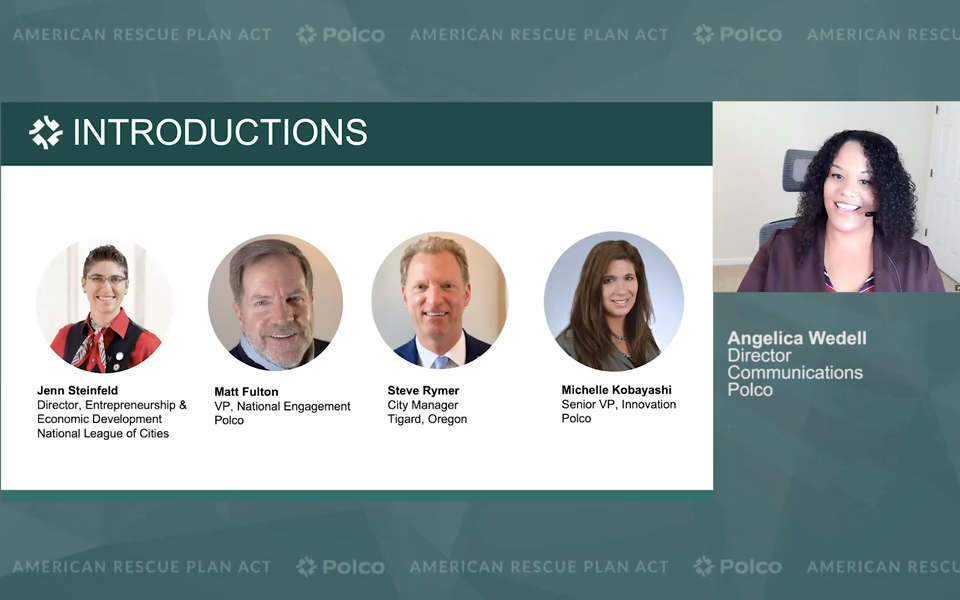Using Community Feedback to Inform Priority Based Budgeting
By NRC on October 4, 2018

- By Keifer Johnson -
As city leaders look to establish an effective and acceptable budget for their community, they often run into a commonplace worry: how do they account for public opinion when creating a budget? After all, the budget must reflect the values and priorities of the overall community.
Budgeting is the fine balance between the needs of the community and city resources. And gathering community feedback on residents' wants and needs is a real challenge for countless administrations. But when it comes to establishing a Priority Based Budget, local governments are most successful when they take citizen priorities into account.
“Open dialogue is essential as we plan projects, write policies, and provide services,” said Jim Ritsema, City Manager of Kalamazoo, MI.
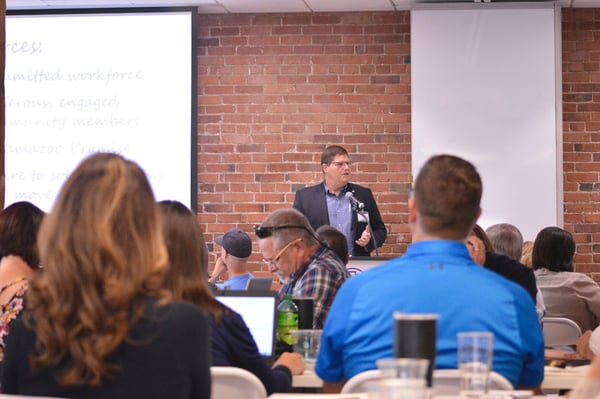 Kalamazoo, MI City Manager Jim Ritsema speaking at the 2018 Priority Based Budgeting (PBB) Summit conference.
Kalamazoo, MI City Manager Jim Ritsema speaking at the 2018 Priority Based Budgeting (PBB) Summit conference.
How to Collect Community Feedback for PBB
Cities, towns and counties can use a range of channels to collect valuable community feedback.
1. The Citizen Priority Survey
In partnership with the nation’s leading Priority Based Budgeting (PBB) company, ResourceX, National Research Center, Inc (NRC) is developing a long-awaited budgeting survey tool. Announced at a recent ResourceX PBB conference, The Citizen Priority Survey will allow local governments to easily incorporate public opinion into the PBB process.
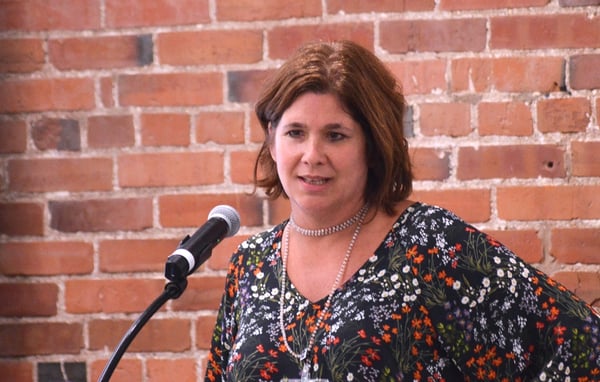 Michelle Kobayashi, Vice President of National Research Center, Inc., announces The Citizen Priority Survey, in partnership with Resource X.
Michelle Kobayashi, Vice President of National Research Center, Inc., announces The Citizen Priority Survey, in partnership with Resource X.
“Pairing a community survey with PBB ensures the voice of the resident is infused in local government budgeting,” said NRC Vice President Michelle Kobayashi.
Chris Fabian, Co-founder of ResourceX, agrees this survey has been a long time coming. “We’ve been hearing for years from cities who’ve wanted to see a collaborating product, and we’re excited to finally have one,” Fabian said.
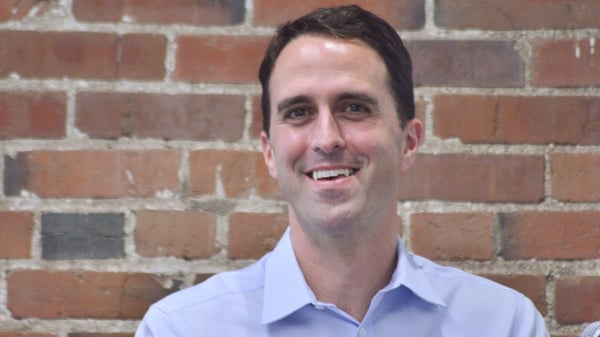 Chris Fabian, Founder and CEO of ResourceX, has helped local governments find fiscal stability for more than ten years.
Chris Fabian, Founder and CEO of ResourceX, has helped local governments find fiscal stability for more than ten years.
The new budgeting survey combines established questions from The National Citizen Survey™ (The NCS™) - NRC’s flagship, benchmarking community survey - with new questions specifically designed to inform prioritization of government programs. Surveys give residents a voice in the budgeting process, and leaders get hard data to use in decision making and deriving creative solutions. “This focus on results not only leads to greater collaboration across departments, but promotes innovative thinking on how to accomplish community goals,” Kobayashi explained.
Data results matter to all community stakeholders. “It’s not just elected officials who want hard numbers. It’s the Public,” Toledo, OH Council Member Sandy Spang said at the PBB conference.
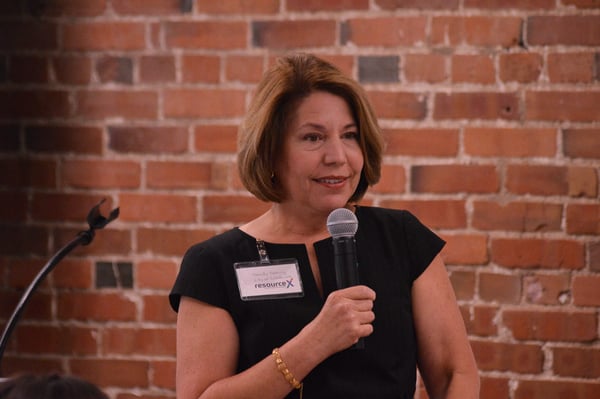 Toledo, OH Council Member Sandy Spang, presenting.
Toledo, OH Council Member Sandy Spang, presenting.
In addition to surveys, experts recommend a few more methods to gaining comprehensive feedback for budgeting purposes.
2. Focus Groups and Town Meetings
Focus groups and town meetings allow city leaders to interact in dialogue with community members who are opting into the discussion. These environments are controlled and welcome a government ear into resident conversations. In-person discussions allow decision-makers to ask plenty of open-ended questions, inviting qualitative data to be used in the prioritization process.
Focus groups do come with drawbacks though. First, they leave large segments of the population unrepresented (i.e. those whose daily lives don’t allow time for public hearings or focus groups). This type of non-scientific feedback, usually lacking an accurate reflection of whole community, can skew the view of overall resident opinion.
However, when information from focus groups and meetings are considered in conjunction with a scientific survey, they can help explain the Why to How residents respond. Leaders need a way “to take a step back and thoughtfully evaluate how our budgetary decisions impact our community’s priorities,” Kalamazoo City Manager Ritsema said, whose city has conducted both PBB and The National Citizen Survey (among multiple methods of gathering resident feedback).
3. Online Engagement
Social media, email and website feedback are no longer optional. Residents expect their local government organizations to engage with them online. By reaching out over a range of digital platforms (i.e. Facebook, NextDoor, Email), city leaders can engage with unique users through the communication channels they prefer. Savvy budgeters can consider online comments and messages in regards to PBB.
Online users want to receive content from their local governments that is relevant and useful. Letting residents into the budgeting process and issues they care about empowers them, and taps into one of the secrets for successful public engagement.
Like in-person focus groups and meetings, however, it is important to remember that heeding online feedback is not a cure-all. Some demographics are less likely to engage digitally, or use the Internet as a means of communication at all. Also, since the Internet itself is a globally public channel, conversations can be skewed by users who are not residents and who don’t have any stake in the local budget.
But when online feedback is paired with scientific survey data, it can clue decision-makers into the larger conversations about their organization.
The Future of Priority Based Budgeting
Bringing community feedback into Priority Based Budgeting is the next step in fiscal innovation.
“Top performing local governments are already finding ways to bring community values into the budget,” said NRC Marketing Director Angelica Wedell. “We just want to make that easier for them.”
“The ability to assist with this groundbreaking methodology and the tools that help schools and local government steward their financial assets in more focused ways will be an incredible challenge and journey,” said former Englewood, CO City Manager Eric Keck upon joining ResourceX as Vice President of Customer Success.
 ResourceX VP of Customer Success Eric Keck and NRC Marketing Dir. Angelica Wedell catch up at the 2018 PBB Summit.
ResourceX VP of Customer Success Eric Keck and NRC Marketing Dir. Angelica Wedell catch up at the 2018 PBB Summit.
The National Research Center and ResourceX teams report that the new Citizen Priority Survey will launch officially at the start of 2019. For more information on how your jurisdiction can be one of the first to implement this survey along with PBB, contact NRC or ResourceX to let us know you are interested.
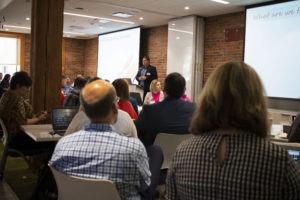
See NRC’s full ResourceX 2018 PBB Summit Conference Photo Album on Facebook
Related Articles
• How to Get Buy-in for Priority Based Budgeting
• Ten Biggest Challenges of Local Government Budgeting
• The Perfect Complement to Your Budget Survey
Popular posts
Sign-up for Updates
You May Also Like
These Related Stories
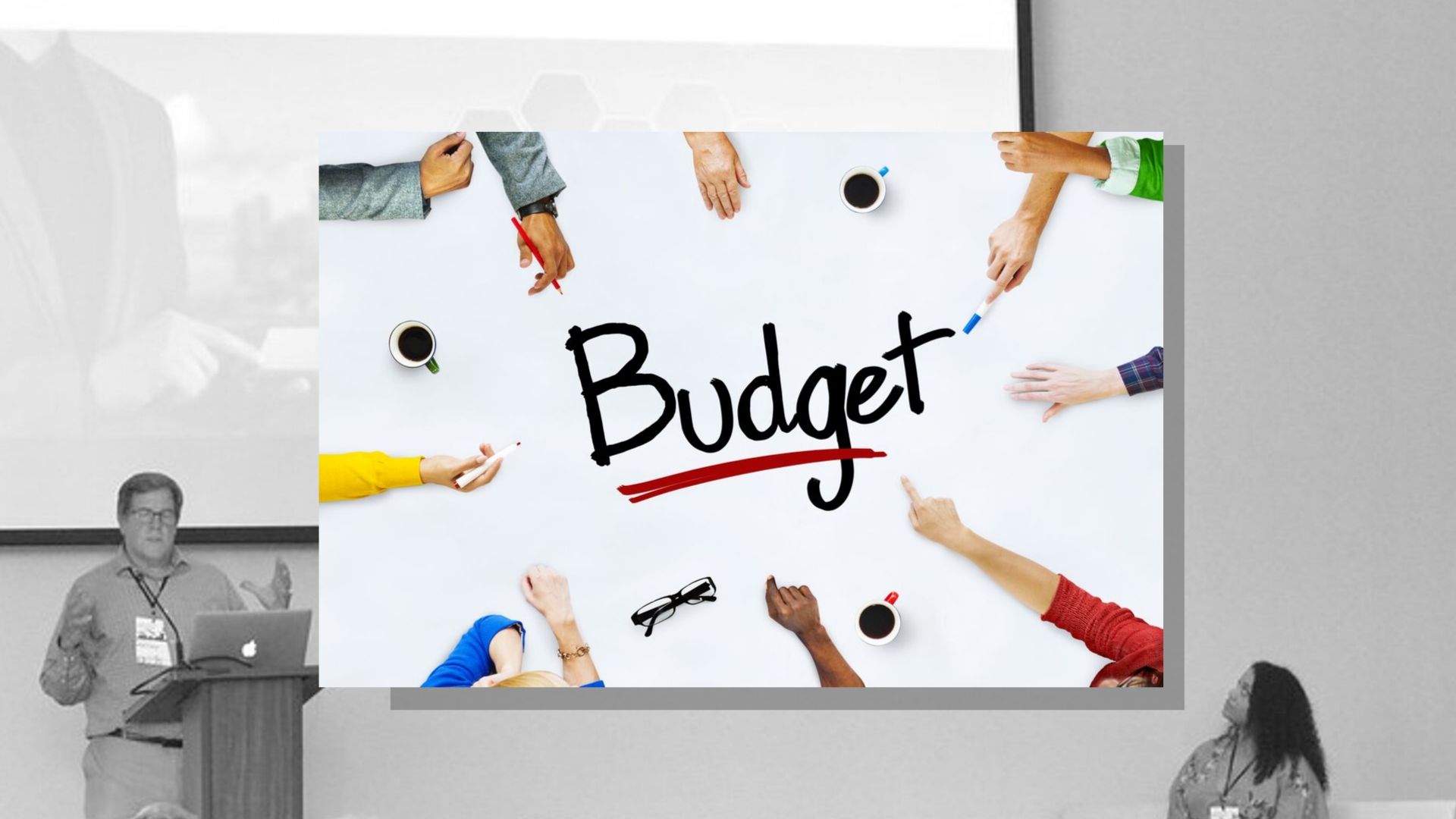
Why Community Input and Priority Based Budgeting Go Together, Perfectly

More About National Research Center, Inc.
